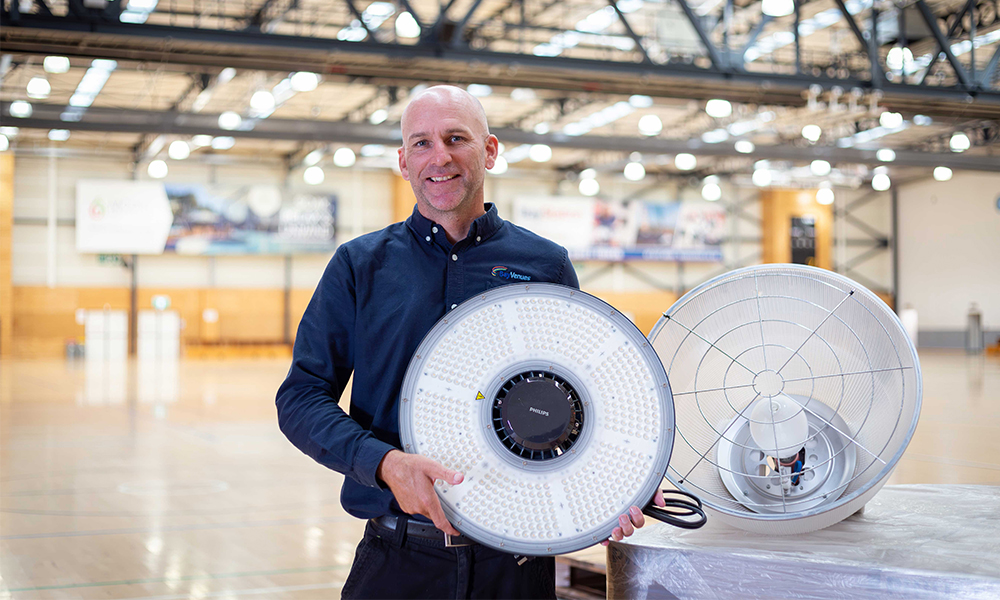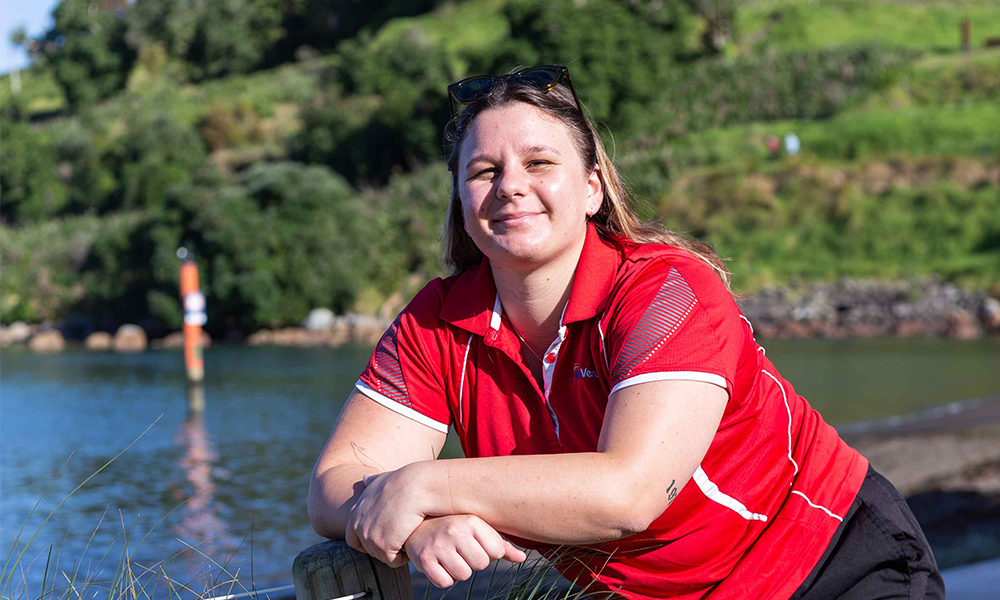We use cookies to improve your experience, personalize content, and analyze our traffic.
By continuing to browse the site, you agree to our use of cookies.
With two million annual visits across 24 locations, the journey to carbon neutrality is a big one for Bay Venues, ranging from pest control and lighting advances to water-saving measures.

Harvesting rainwater, installing energy efficient lights, pest control, and introducing fully electric and hybrid vehicles – Bay Venues is definitely taking sustainability seriously.
The organisation, which hosts two million visits a year at the 24 public facilities it manages on behalf of Tauranga City Council, has embarked on a journey to carbon neutrality and made a firm commitment to sustainability.
It’s committed to using more renewable resources, promoting biodiversity, creating less waste, and reducing greenhouse gas emissions. It’s committed to repairing, reusing and recycling.
The ultimate goal: to reach carbon zero by 2050.
Bay Venues’ area of responsibility and reach is significant – its facilities stretch right across this rapidly growing city, from Pāpāmoa in the east, to Pyes Pā in the south, across to Bethlehem and everywhere in between. The sheer scale of the operation gives you an idea of how important this sustainability commitment is.
“Like most large organisations and businesses, we have a lot of work to do when it comes to looking after the environment and minimising our footprint,” Bay Venues Chief Executive Chad Hooker says.
“The path ahead always looks long and winding at the outset, but we are on our way. We have set our course, we know what we want to achieve, and we are already making some considerable progress that we are incredibly proud of.”
Every organisation needs a sustainability spark. An instigator.
At Bay Venues, it is Steve Edgecombe.
Steve joined the organisation in 2008 and has been driving sustainability initiatives since moving to Baypark in 2016. His first project was replacing rusting steel rubbish bins at Baypark Stadium with a new waste and recycling programme.
That programme (with its multi-coloured bins) was soon rolled out across the rest of Baypark and the wider venue network, with clear signage in place and a system for recording recycling progress, as well as incentives for customers.
For example, bring your own cup when buying a coffee in the cafes at Mercury Baypark Arena and Baywave, and 25 cents will be donated to Trees That Count, to go towards planting native trees.
Steve is the Asset & Project Manager at Bay Venues and also leads a sustainability team made up of representatives from across the organisation.
“If we can improve what we do as individuals and as an organisation, and educate people on being better around their carbon footprint, then we are making progress,” he says.
Steve says a string of projects over the past several years have set the sustainability ball rolling at Bay Venues. Momentum is building.
In November last year, the team at Mount Hot Pools started working with Bay Conservation Alliance and Western Bay Wildlife Trust to protect native bird species from rats.
Jessica Kearns, a lifeguard and aquatic supervisor at the hot pools, leads her team in regular pest control work at their facility at the base of Mauao, as well as along Mount Main Beach and Pilot Bay.

They set, monitor and refill bait stations, record how much bait is being eaten and then report back the results. They also pick up rubbish around the areas they are working.
Jessica says lifeguards naturally love contributing to their community and being part of something, and this project allows them to continue that outside of the hot pools, while also helping sustain and protect the beautiful natural environment around them.
“It’s definitely cool to get out there and bump into customers and members of the public and let them know what we’re doing – sometimes even they want to volunteer and jump in,” she says.
“We love looking at the native bush and listening to the bird chatter on Mauao from the Mount Hot Pools, so our team enjoy doing our bit to protect and preserve that from the menacing introduced species.”
From promoting and protecting biodiversity, to reducing energy consumption.
Earlier this year, the large overhead metal halide lights in the six-court indoor sports facility at Mercury Baypark Arena were replaced with LED lights.
“We are always excited to replace old assets with new, and LED lighting ticks a lot of the sustainability boxes,” Steve says.
“We will see a significant reduction in energy consumption which equates to lower carbon emissions and operating costs.”
He says LED lighting is also very reliable and the new lights have an 80,000-hour life, “meaning a lot fewer replacements of the traditional bulbs and therefore maintenance costs”.
The change to LED lights is projected to save up to 70 percent of the current lighting spend for the six-court area. Over 10 years, that could equate to a saving of more than $400,000.
“To top things off, we have also been able to recycle a lot of the components from the old lights,” Steve says.
LED lighting has also been installed over the past few years at Baywave, Queen Elizabeth Youth Centre, Mount Hot Pools, Memorial Hall, and the Baypark car park and pit area.
Baywave has also recently introduced rainwater harvesting.
A 10,000-litre rainwater catchment tank was installed in the Baywave compound during the upgrade and maintenance work that was completed earlier this year. That rainwater tank now supplies the toilets and showers.
“We are well aware of the amount of water we use at our pools, so we took the opportunity to install this tank,” Steve says.
“We are currently investigating ways to install tanks underground so we can install larger tanks at our other sites and further reduce the water take from the town supply.”
Bay Venues has also purchased a Nissan LEAF full-electric pool vehicle as well as three hybrid cars, and has installed EV charging stations at Mercury Baypark for staff and customers.
Steve says they are also looking into the installation of solar panels at venues.
“One of the biggest challenges with accountability in the sustainability space is reporting data,” he says.
“Two years ago, we decided we would look at becoming Toitū certified. Toitū Envirocare has a very robust recording and auditing process in place, giving us a level of confidence that the information we are providing staff and the community is as accurate as possible.”
That information also provides Bay Venues with a starting point, a line in the sand.
Through Toitū, Bay Venues can now measure its overall carbon emissions (which include electricity, gas, fuel for vehicles, travel and waste) and then work to reduce those emissions over time.
Bay Venues is also in the process of recording third-party emissions, adding to its database.
“Once all the third-party information is gathered, we will be able to set science-based targets that feed into our emissions reduction planning,” Steve says.
He notes it really doesn’t matter what people think about climate change, or whether they believe a small country like New Zealand can make a difference globally.
“You can’t control what other individuals, organisations, cities or nations are doing, so we have chosen to focus on what we might be able to do, or help influence,” Steve says.
“Can we change the world with our sustainability commitment? Possibly not, but it doesn’t mean we still shouldn’t be doing what we can to improve our backyard.”
+ MORE FROM BAY VENUES